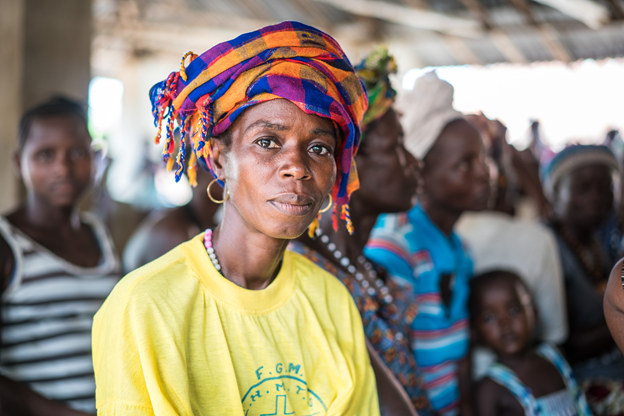Speeches Shim

In 2018, Sierra Leone conducted presidential and parliamentary elections resulting in a peaceful transfer of power from one political party to another, an important milestone in the country’s advance as a developing democracy. To maintain that momentum and ensure that citizens remain confident in government and its ability to provide for the public good, USAID continues to support programs designed to strengthen accountability, good governance, and responsive public institutions. Through the Sierra Leone Election Dialogue Series (SLEDS) and a Health Governance (HG) activity with UNICEF, USAID’s support has been instrumental to promote meaningful participation of all citizens in their political systems, expand the reach of civic education, encourage female aspirants to enter the political sphere, and strengthen the health sector accountability to improve citizen’s confidence in the health system.
The SLEDS program provides training and mentoring to raise the professionalism and improve the reporting of journalists in national and local-community media. SLEDS also works to increase the participation of women and disadvantaged groups in debates and dialogue sessions related to development and public affairs, thereby enhancing the public’s understanding of key national political, economic and social issues that are directly relevant to democratic governance and the electoral process.
The SLEDS program will build on successful investments made during the country’s 2018 electoral cycle by fostering issue-based public dialogues while strengthening the capacities of newly elected officials to assume their roles and deliver more responsive local governance. The program will also support training and other technical assistance for new Members of Parliament, mayors, local councils and Ministry of Local Government officials on their responsibilities and functional relationships with other stakeholders as a result of decentralization reforms.
The HG activity has supported 1,100 Village Development Committees (VDC) in generating Community Action Plans (CAPs) for the delivery of basic services. A total of 3,345 VDC members have been trained to use the CAPs, community score cards, and their leadership roles to monitor the quality of health services delivered to their communities. To further increase awareness and monitor health services, HG trained 152 Journalists and 30 radio stations in health accountability addressing key topics on Free Health Care drugs, the importance of social mobilization in the fight against maternal child health, malaria and other social health problems. USAID programs have helped build capacity of key institutions, ministries, agencies, women’s groups, and civil society organizations. We will continue to use our resources to support decentralization, local governance and democracy, and will promote women’s social, political and economic rights. Efforts will also be made to curb inefficiencies in the public sector, thus creating an enabling environment for stability and sustainable economic growth. USAID is also working to achieve gender equity in Sierra Leone where customary laws, institutional and economic barriers and widely held cultural and social beliefs acting as significant ongoing barriers to women’s full integration into the decision-making sphere at the household, community and national levels.


Comment
Make a general inquiry or suggest an improvement.